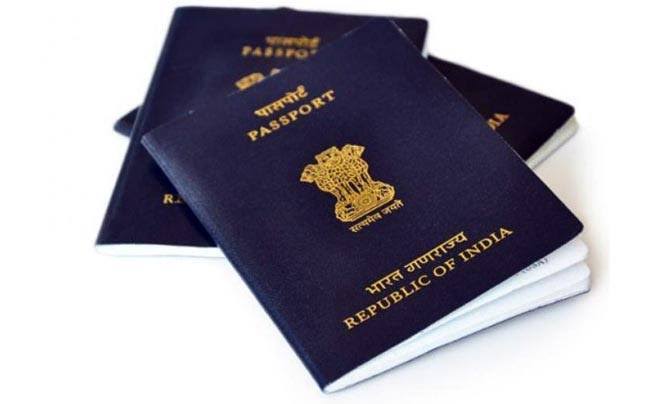No coloured passports for India
To end discrimination and exploitation of its expatriate workers abroad, India needs to go beyond cosmetically changing the colour of passports.
India has finally dropped the idea of issuing orange coloured passports to people requiring emigration checks following the backlash over the last few weeks.
The Ministry of External Affairs (MEA) has also rolled back its decision to stop printing the last page of the passports issued to all citizens of the country. The last page of the passport includes the father or legal guardian’s name, the names of the holder’s mother and spouse, and their address.
On January 12, the External Affairs Ministry had decided not to print the last page of the passport with the address of the holder.
In India, emigration check is required for passport holders not educated beyond class ten and earning less than taxable income, who seek migration for employment. Indian passports are currently issued in three colours. Government officers have a white passport, diplomats are issued maroon passports and all other passports are blue.
The decision to reverse the idea was taken at a high-level meeting, chaired by the External Affairs Minister Sushma Swaraj, and attended by one of her two deputies, VK Singh among others.
“After comprehensive discussions with the various stakeholders, the MEA has decided to continue with the current practice of printing the last page of the passport and not issue a separate passport with orange coloured jacket to ECR (Emigration Check Required) passport holders,” Raveesh Kumar, MEA spokesperson informed.
“The MEA has received several individual and collective representations requesting to reconsider these two decisions… the decision of the MEA on both these issues was reviewed in the light of these representations,” the MEA said in a statement.
Originally, India had planned to issue orange passports to those requiring ECR and travel to a group of 18 countries, mostly in the Gulf region.
Of the 15 million expatriates in the Gulf Cooperation Council (GCC) countries, workers from South Asia constitute 9.5 million. Of these, Indians constitute the largest group — a whopping six million, as per the Ministry of Indian Overseas Affairs estimates — with a majority coming from the Indian states of Kerala, Tamil Nadu, Andhra Pradesh, Uttar Pradesh and Bihar. They are all engaged in the six Gulf states of Bahrain, Kuwait, Qatar, Saudi Arabia, United Arab Emirates and Oman, many of them trafficked and exploited. Also, they are duped by job agents in India, and trapped in low-paying jobs with few benefits or protections.
Discriminatory step
The decision came under severe criticism from several quarters. Congress President Rahul Gandhi had attacked the Modi Government over the decision. “Treating India’s migrant workers as second class citizens is completely unacceptable. This action demonstrates BJP’s discriminatory mindset,” he had tweeted. Kerala Chief Minister Pinarayi Vijayan had said that it amounted to violation of the fundamental right to equality guaranteed to a citizen by the Constitution of India. Dinesh Trivedi of the All India Trinamool Congress had said that the MEA plan went against human dignity and that it reminded him of the apartheid of South Africa.
Kerala-based lawyer, Shamsuddeen Karunagappally, had filed a petition in the Kerala High Court arguing that such a move would lead to segregation of people with low education and low economic status.
Indian workers sent home USD 69 billion in 2015 and USD 62 billion in 2016 making India the world’s top recipient of remittances. But many of those who travel, especially those who provide cheap, unskilled labour, are very vulnerable to exploitation.










